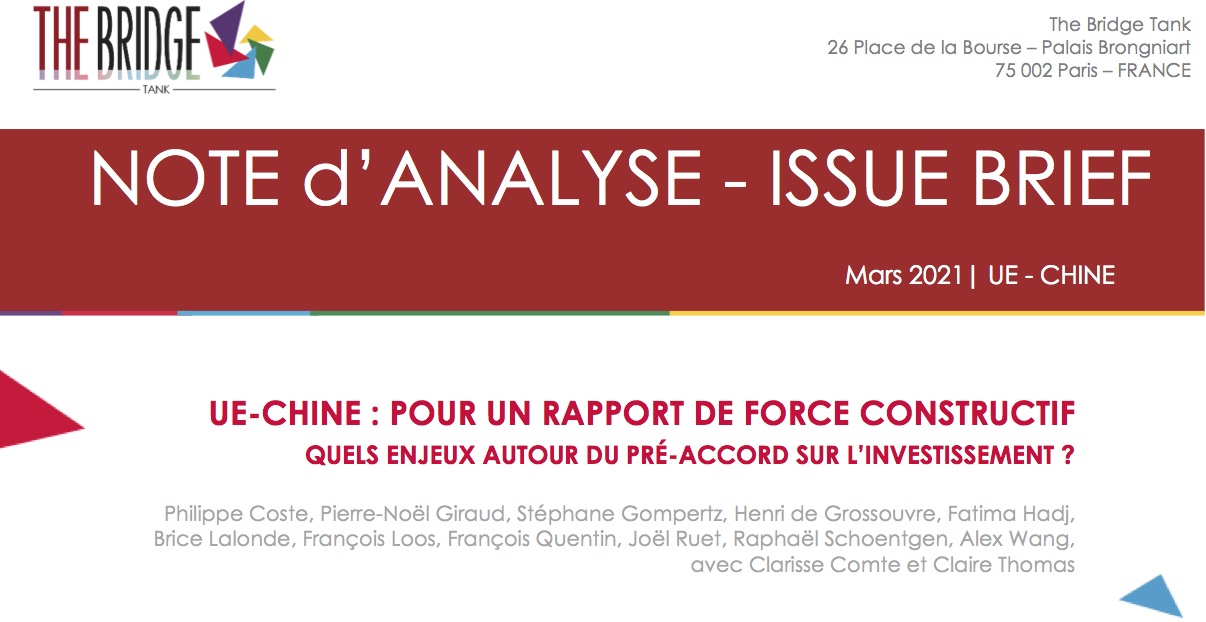By Philippe Coste, Pierre-Noël Giraud, Stéphane Gompertz, Henri de Grossouvre, Fatima Hadj, Brice Lalonde, François Loos, François Quentin, Joël Ruet, Raphaël Schoentgen, Alex Wang, avec Clarisse Comte et Claire Thomas.
After seven years of negotiations, the European Union and China reached an investment agreement on December 30, 2020. While Beijing sees in it the promotion of a “high degree of openness”, the EU aspires through this treaty to establish the long sought after “equality of market conditions”.
To carry out this project, a balance between the strategic interests of each side and common objectives on which to agree remains to be found… just as it remains to find avenues for concrete action.
Find the analysis note in French :2021-03-Issue-Brief-UE-CHINETélécharger
• This treaty provides for the intensification of economic and trade relations between the EU and China. It guarantees EU investors greater access to China and also helps to create more balanced conditions of competition.
• Areas of collaboration are proposed here, in various fileds : political (place of China in international organizations, global governance), legal (international standards, ESG), industrial (mobility, decarbonisation, role of SMEs), economic, environmental, scientific , technological (energy transition, carbon capture, hydrogen, nuclear, new energies), financial (coordinated introduction of carbon prices) and cultural.
• For the EU, it is above all a matter of asserting its strategic interests in a coordinated manner with the member countries during the ratification process.
The long-term issues of technological sovereignty, of competition between blocs, all possible causes of “stop and go” in bilateral relations must be seriously dealt with.
Despite the identified obstacles, maintaining an open but precise dialogue between the EU and China is essential. The European Union must continue its transformation and ensure respect for its increase in diplomatic power both within the EU and in its relationship with China: beyond state-to-state relations, it is up to the EU in as a community to negotiate the terms of a new bilateral relationship with China. It is in this way that it will confirm its status as a “balancing power”.

